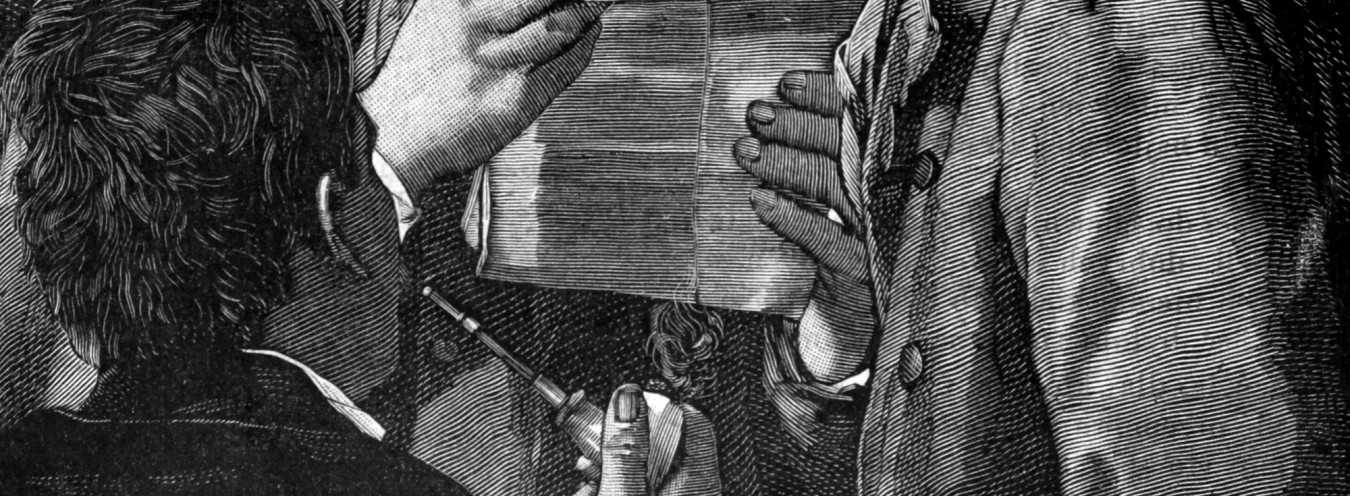
Auction
But here was the main court-room, into which all the Hebrews were hastening, and where the whole business of the auction was concentrated. (312)
In the course of the novel, Tomasz Łęcki gradually goes bankrupt; his tenement house is put up for auction. The auction depicted by Prus is reminiscent of a theatre performance. There is supposed to be enough money from the sale left after the repayment of debts and overdue taxes for Łęcki to invest in a business partnership with Wokulski, pay his current expenses, and go to Paris with his daughter. The auction, taking place in a court, is conducted by auctioneers, i.e., bailiffs (of Russian nationality). Persons interested in buying the house declare how much they are willing to pay. The one who offer the most win. Prus masterfully describes how fake bidders, who push up the price, hang about among the auction’s legitimate participants. This dishonest, widespread practice was tolerated by the authorities. In the novel, the bidders who participate in the auction of the Łęckis’ house include a solicitor representing Baroness Krzeszowska, who can pay 60,000 roubles at most, and on the other hand – old Szlangbaum, planted by Wokulski, who wants to pay 90,000. Szlangbaum makes sure that the agreed sum is accepted and buys the house on Wokulski’s behalf, much to the chagrin of Baroness Krzeszowska and Łęcki, who is labouring under the misapprehension that he will be able to push up the price of the house considerably.



